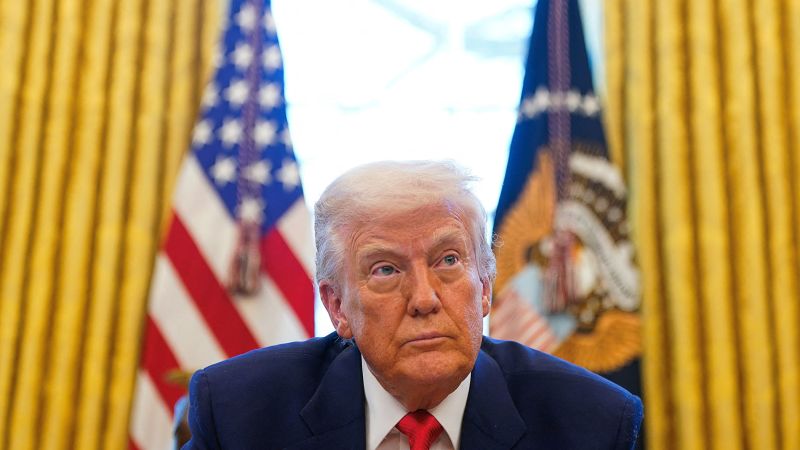US Tariffs: Impact on Global Trade, Market Volatility, and International Relations

The global economic landscape is currently undergoing a period of significant upheaval, largely driven by shifts in trade policies and escalating tensions between major economic powers. Recent analyses and expert opinions highlight the potential for substantial changes in trade patterns, economic growth, and international relations as a result of these developments.
One of the most pressing concerns is the potential shrinkage of global trade due to tariffs imposed by the United States. According to Pamela Coke-Hamilton, Executive Director of the International Trade Centre, global trade could contract by as much as 3%, leading to long-term shifts in trade patterns and economic integration. This contraction is not uniform across all regions; instead, it is prompting a realignment of export destinations. For instance, Mexican exports are increasingly being redirected towards Canada and Brazil, while Vietnamese exports are shifting away from the US and China towards the Middle East, North Africa, and the European Union.
The impact of these tariffs is particularly acute for developing countries that rely heavily on specific industries. Bangladesh, a major apparel exporter, could face a significant loss in annual exports to the US due to reciprocal tariffs. To mitigate these shocks, Coke-Hamilton advises developing countries to prioritize diversification, value addition, and regional integration.
Initial estimates suggest that the long-term effects of these trade policies could reduce global GDP by 0.7% by 2040, with countries like Mexico, China, Thailand, and those in Southern Africa being among the most affected, alongside the United States itself.
The trade war between the US and China is a critical factor in this global economic realignment. Wendy Cutler, Vice President and Managing Director at the Asia Society Policy Institute (ASPI), notes that China's decision to impose 125% tariffs on US imports indicates that Beijing is prepared for a protracted trade conflict. With tariffs this high, goods trade between the two largest economies could virtually halt. Daniel Russel, ASPI's Vice President of International Security and Diplomacy, suggests that China is shifting away from symmetrical retaliatory tariffs, aiming instead to outlast and outmaneuver the US by buffering its economy and expanding diplomatic clout.
Experts like Fareed Zakaria have criticized the Trump administration's handling of the trade war with China, arguing that it has undermined the greatest deterrent to Chinese aggression towards Taiwan: the deep economic interdependence between China and the US. Zakaria suggests that the tariffs have played into the hands of Chinese hardliners who have long sought decoupling from the American economy.
Despite the trade tensions, the United States is also engaging in negotiations with other countries to address trade imbalances. The new US ambassador to Japan, George Glass, has expressed optimism about upcoming tariff negotiations between Washington and Tokyo, emphasizing the importance of the bilateral relationship. Similarly, Taiwan is actively seeking a free trade deal with the US and has proposed a zero-tariff regime and increased investments in the country.
However, the volatility in tariff policies has created uncertainty and instability in financial markets. European stocks have experienced significant fluctuations, with the STOXX 600 index experiencing its third consecutive weekly decline. Investors are struggling to assess the economic impact of the trade war, and market sentiment remains fragile. Steve Sosnick, chief strategist at Interactive Brokers, notes that markets are unsure what to expect, leading to cautious investment behavior.
The ongoing trade tensions and tariff policies are also impacting consumer behavior. Boycotts against US products are gaining momentum in countries like Canada and Europe, with consumers actively seeking out local alternatives. This backlash is affecting major brands, such as Tesla, which has seen a decline in sales and market share. Dylan Lobo, who runs a website promoting Canadian-made goods, reports a surge in traffic, indicating a growing desire among consumers to support local businesses.
Overall, the current global trade landscape is characterized by uncertainty, volatility, and shifting alliances. While some countries are seeking to negotiate new trade deals and mitigate the impact of tariffs, others are bracing for a prolonged trade conflict and potential economic disruption. The coming months will be critical in determining the long-term consequences of these policies and the future of global trade.












